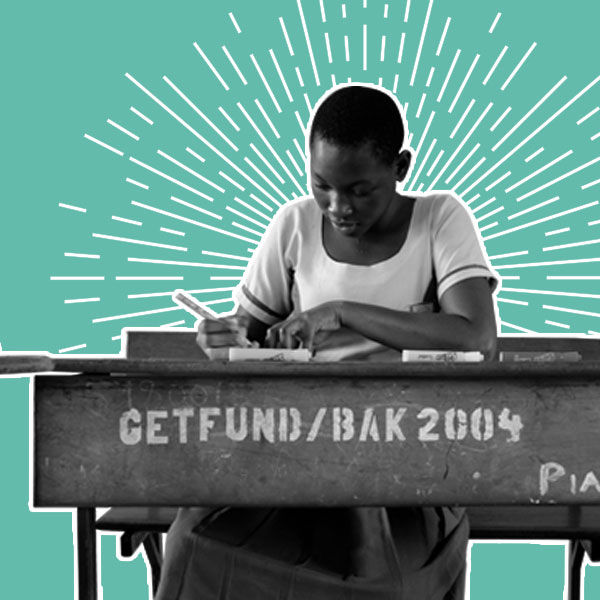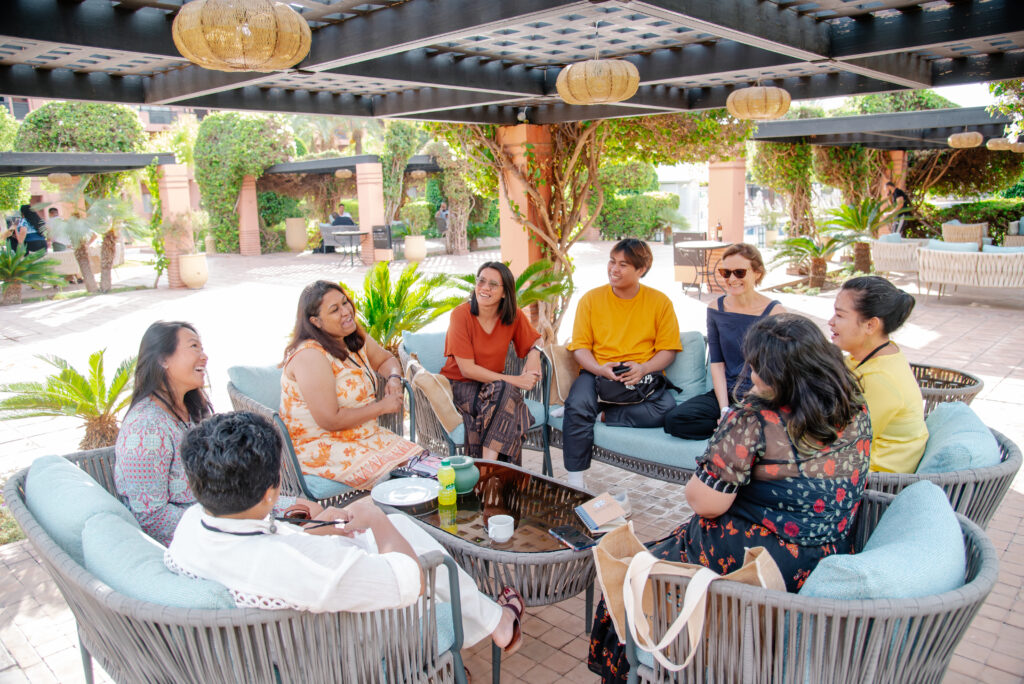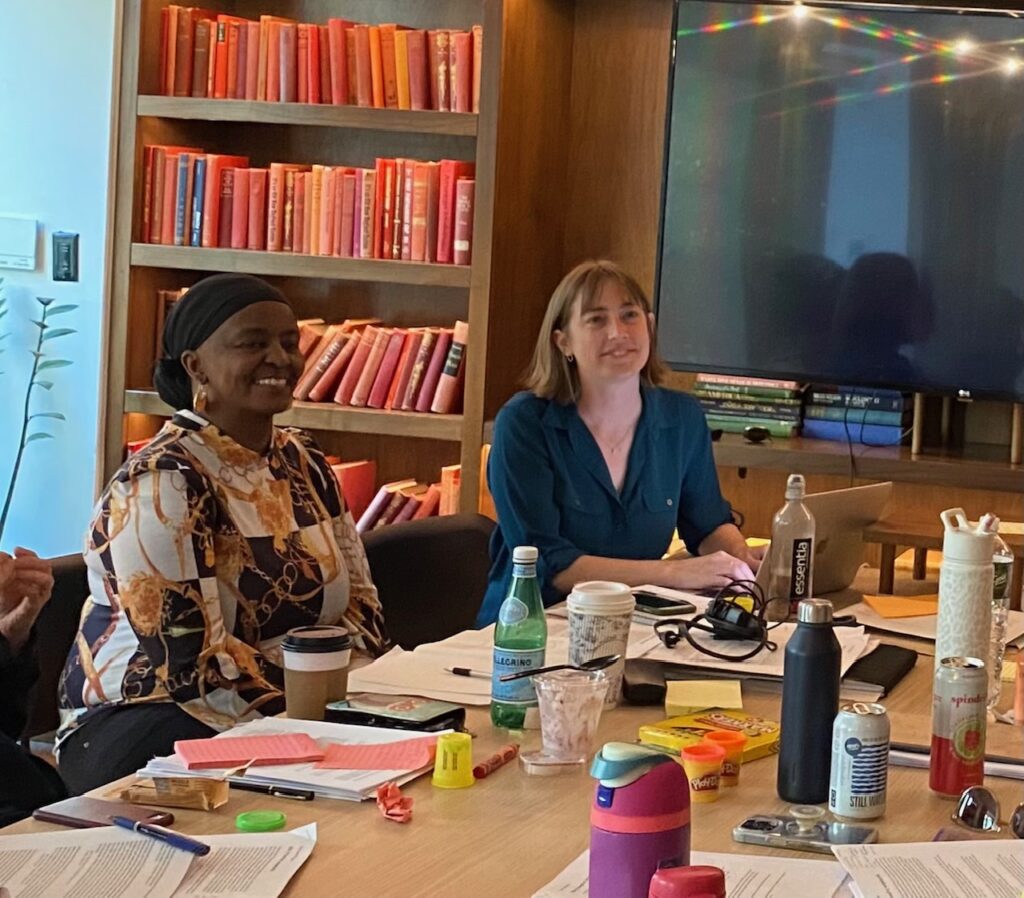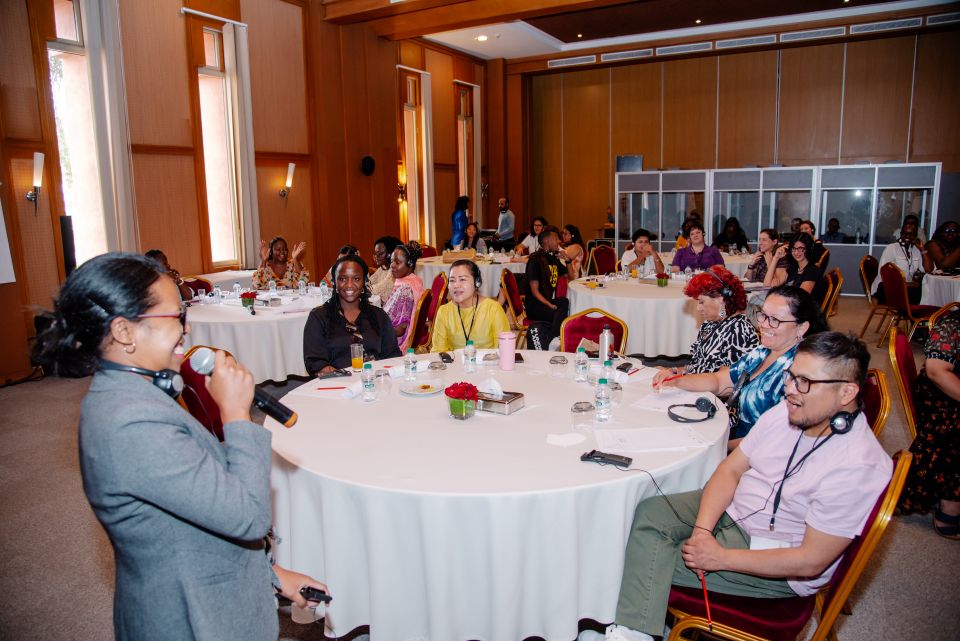Every Girl’s Right

In this boisterous back-to-school season, we can celebrate this moment of joy and near-unanimity here in the United States that both boys and girls have the right to an education and to achieve their fullest human potential.
The moment is worth celebrating not only because near-unanimity isn’t easily come by these days in America. Much more importantly, in many parts of the world, girls do not enjoy these rights – a sad fact resulting in the lasting impoverishment of their lives, and those of their families, communities, and nations.
Indeed, a study by the Brookings Institution , looking at indicators of access and learning levels, found that across 80 countries, an estimated 130 million girls are not in primary or secondary school, with some 15 million having never set foot in a classroom. Some of those 15 million girls live in violence-plagued areas, where they are are 90 percent less likely to be in school.
Despite these daunting obstacles, there is much we can do to help more girls get an education.
Through Girls’ Clubs, WomenStrong International delivers socially innovative programming that give young women a safe space where they can receive reliable information from trusted mentors while connecting with other girls their own age.
WomenStrong’s Girls’ Clubs help girls meet their essential needs so that they can finish school, lead healthier lives, and lift themselves out of extreme urban poverty. For young girls whose poverty can be both demanding and isolating, our programs demonstrate the value of building friendships and the power of being part of a group. This understanding is key to helping young girls grow into healthy, educated, successful women capable of maintaining strong ties and realizing their dreams.
This goal — empowering women out of extreme urban poverty and into their best lives — is at the heart of what we work towards every day at WomenStrong International.
Global Communities Thrive When Women Are Educated
The long-term effects of women who finish their education are far more numerous and significant than may initially meet the eye. The impact is both individual — a young woman making intelligent choices about health, marriage, and family — and national — lower child mortality rates, lower prevalence of child marriage, lower rates of HIV infection, etc.
Spin the globe, and pick a spot: everywhere you look, educated girls grow into educated women who give back to themselves, their families, and their communities. Girls who finish school are less likely to marry young or to put themselves at risk of contracting HIV/AIDS. They are more likely to have smaller families and to raise healthy, educated children. The Malala Fund and others have found that each year a girl completes further reduces both infant mortality and child marriage.
At WomenStrong, facts like these come to life every day, in our work with our Consortium member organizations. With our Ghana Consortium member Women’s Health to Wealth, we have seen young women, including pregnant 16-year-olds, empower themselves, and each other, to lead confident, fulfilled lives. They remain and excel in school, they learn to speak up for themselves and their fellow students, and with each passing school year, their earning power shoots up 10 percent. In Ghana and elsewhere, educated women invest 90 percent of their earnings into their families’ wellbeing, a far higher percentage than that invested by educated men. Educate a girl, and she will use what she knows to elevate her community and to create the world in which we all want to live.
How We Help Girls Stay in School
Making women strong means helping women and girls develop the knowledge, skills, and resources needed to determine the course of their own lives. It means creating an environment in which they have the freedom to choose their own goals, both as individuals and as members of their community. Through our Girls’ Clubs, developed in tandem with our Consortium member organizations, WomenStrong is creating these environments.
We start by listening to the needs of local women and girls, to learn what they face day-to-day. We then pilot and promote programs that can best address those needs. Once those programs are developed and put into practice, we take note of the successes and missteps and share that information with our Consortium members in other countries. In short, we act as a hub for sharing social innovations, for both our Consortium and beyond.
We have already witnessed remarkable achievements in our Girls’ Clubs around the world.
In Ghana, after listening to girls’ needs in communities surrounding Kumasi Women’s Health to Wealth developed a program that reaches more than 1,000 girls with lessons about health, self-esteem, and why their education matters. In Kisumu, Kenya, Alice Visionary Foundation Project has established Clubs that help girls in the informal settlements excel in their academics and gain an understanding of their sexual and reproductive health and rights. Girls’ health, rights, protection, and life choices are also the focus of our Clubs in Haiti, led by WomenStrong Consortium member H.O.P.E. in the destitute northern seaside town of Borgne. And in the slums of Madurai, India, WomenStrong Consortium member DHAN Foundation has screened and treated more than 4,000 girls for anemia, trained them in nutrition, hygiene, reproductive health, and life skills, and offered them career counseling to help them fulfill their widened ambitions.
Jordan’s Queen Rania has wisely observed, “If you educate a girl, you kickstart a cycle of success. It makes economic sense. It makes social sense. It makes moral sense. But, it seems, it’s not common sense yet.”
Let’s use this back-to-school moment to help educate lots more girls, kickstart countless cycles of success, and use this self-evident cause-and-effect to spread common sense worldwide.




